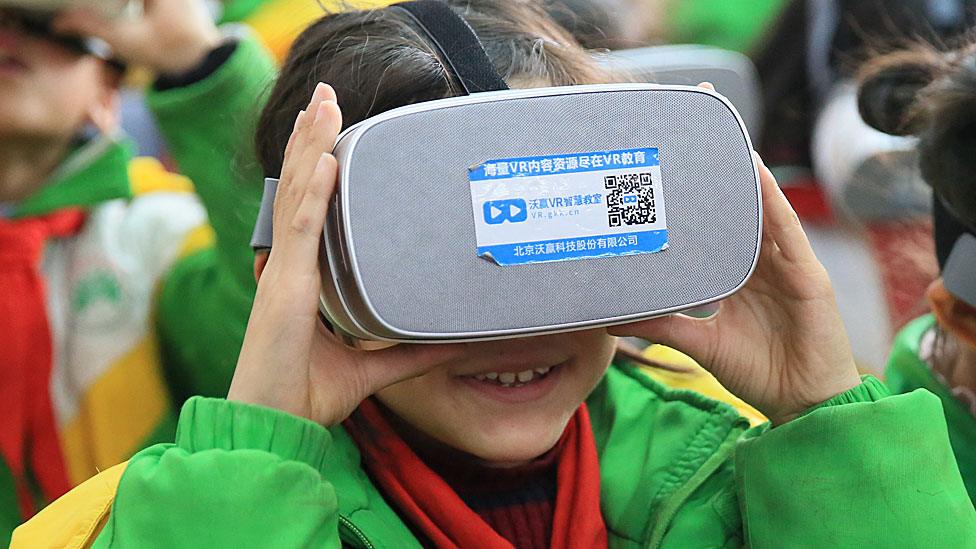Smartphones in school: Ban, restrict or allow?
- Published
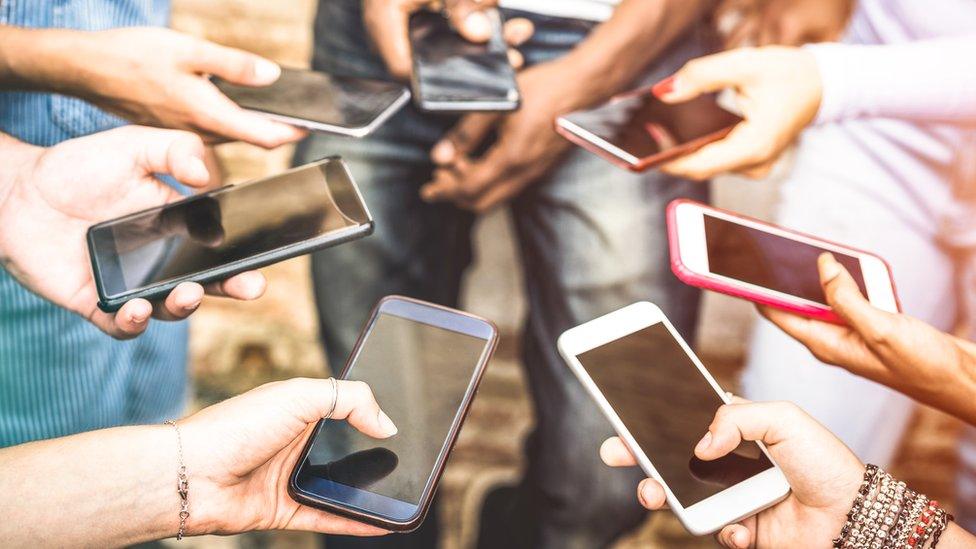
Love them or hate them, smartphones have become an integral part of our daily lives. But should they be left outside the classroom?
Nick Gibb, the minister for school standards in England, told the BBC he believes schools should ban their pupils from bringing in smartphones.
Opinions are certainly divided, with many people saying that pupils should be taught how to use their phones responsibly.
Preparation for life after school
Peter Freeth, whose daughters are aged 13 and 18 years old, says schools should do more to integrate phones into the learning experience.

Peter Freeth, here with his daughters, says "It's too late to take phones off kids so get them using them for something valuable"
"Schools expect children to do their homework on computers. They need to use apps in the classroom as part of the process, to watch videos, stream content, log attendance and participate in study groups. Basically, all the things that smart businesses do."
"Banning phones is based on an old idea that students should sit quietly in front of the teachers. There shouldn't be a disconnect. In the work place we're adapting the learning process to the learner. The idea of getting rid of smartphones is about conformity."
A fantastic power in their hands

Astrid says there's a hypocritical divide where adults "choose to reject the reality of the 2019 world and how so many people function and communicate"
Astrid Natley, an English teacher at a secondary girls grammar school in Lincolnshire, incorporates phones into her classroom.
"My school does not have money for classroom tablets and technology."
"When students use their phones for research, they learn that they have a fantastic power in their hands. We can give the student the ability to see how education can be accessed at home without it feeling like a despised departure from their own world."
"For reading difficulties, font size can be increased on their phones; for recording their work, photos can be taken, and I also use group quizzes to engage the students."
"If we stop children using phones, then we're rejecting something they care about. Phones are important for them and that's not going to change."

You might also like:

'No place in a child's life'
Meanwhile, Yvonne Lockhart, a registered nurse who has worked for community education supports a complete ban.
"I am banned from mobile phone usage at work, and my phone must be 'removed' from my person or handed in. If I am caught with it in my pocket, I will be subject to a disciplinary procedure which will impact on my career."
"We need to teach children how to behave like the professionals they are striving to become. Ban the phones, they have no place in a child's life."
Kids are socialising
On Facebook, Tara Blount reveals her children's school has implemented a ban and are seeing the benefits.

Richard, a secondary school English teacher in the independent sector, thinks there should be a clear separation between school and home.
"We wouldn't expect children, left to their own devices all day with no formal schooling, to voluntarily pick up text books at home and learn, so it is inherent in the system that they do things differently in the two environments."
"Children are getting more than enough screen time and access to this technology in their lives without the need to bring it into the classroom. The internet is too easy and too unreliable a research tool, so let's leave phones and laptops at home, and show them a different world in their lessons - one of books and pens."
Stop bullying
Assistant head teacher Alison Gill, from Shropshire, agrees an all-out ban is necessary so staff can "do what they're trained to do and not take on the role of the police or social services."
"We have a computer suite, where students can use the internet, under supervision. We've no way of tracking what they're looking at on their phones, iPads or smart watches."
"We have already had a case of harassment whilst a student was off school. Allowing students mobile technology into school adds another layer of issues for teaching staff to deal with and also leads to further confrontations inside and outside of the classroom."
Safety is key
Many people accept that mobile phones are a very useful way of keeping in touch with children and making sure they travel safely to and from school. Parents with children who have medical conditions say a smartphone is vital to keep tabs on their health.
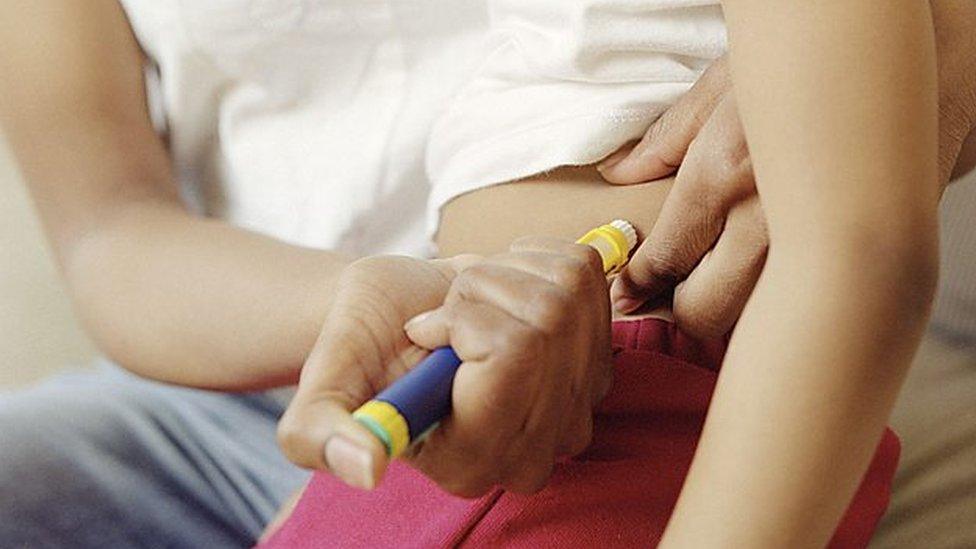
Kay Bellwood's son's mobile phone monitors his glucose levels
Kay Bellwood's 11-year-old son has Type 1 diabetes and relies on his phone to to tell him his blood glucose levels.
"His phone has tracking, so if his blood glucose level is too low he can be found if he's unable to walk or talk. He can send an SOS."
"It is literally life saving medical technology. A ban would be direct discrimination under the equality act."
Written by Sherie Ryder, UGC and Social News
- Published2 February 2019
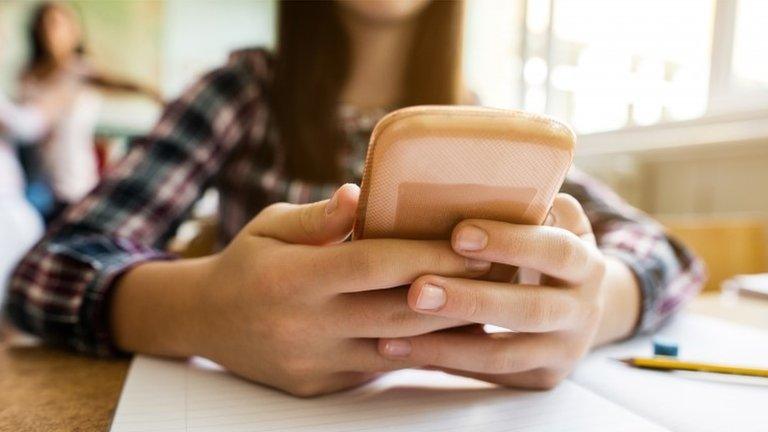
- Published20 June 2018
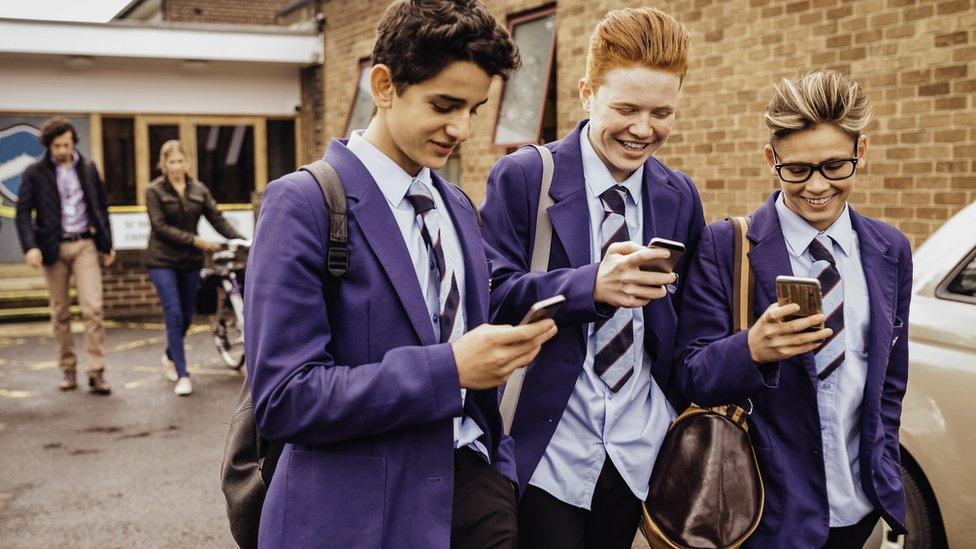
- Published13 November 2018
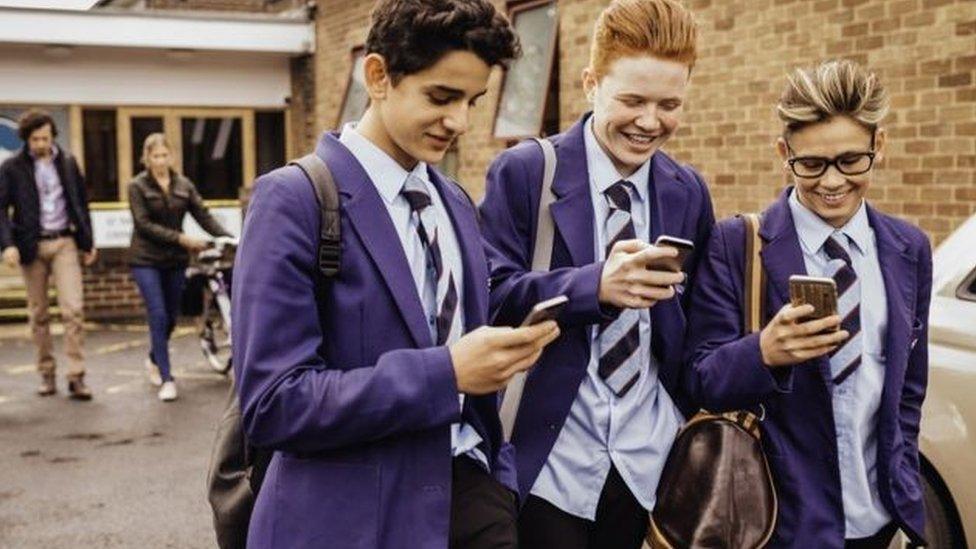
- Published30 January 2019
